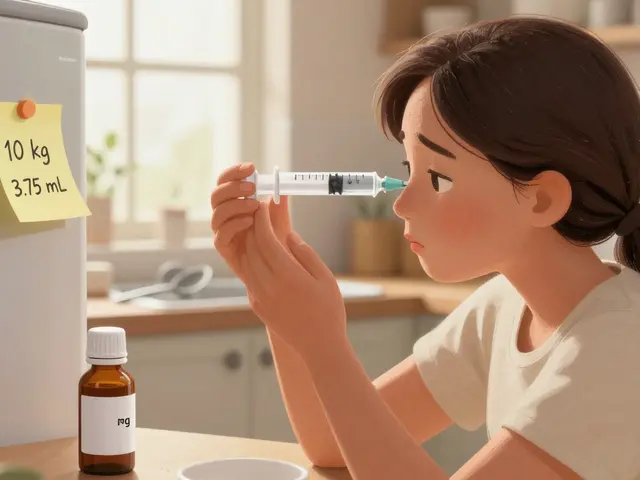Learn how to control chemotherapy‑induced diarrhea with diet, hydration, medication guidance, and clear steps to know when to seek medical help.
Dehydration: Understanding Causes, Risks, and Simple Solutions
When dealing with dehydration, a condition where the body loses more water than it takes in, leading to impaired physiological function. Also known as fluid loss, dehydration can sneak up on anyone from active athletes to seniors at home. Electrolytes, minerals like sodium, potassium, and chloride that help regulate nerve and muscle function play a crucial role because losing water often means losing these salts too. Proper hydration isn’t just about drinking water; it’s about keeping the whole fluid‑balance system working.
Fluid balance is a dance between intake, loss through sweat, urine, and breath, and the body’s ability to retain what it needs. Heat illness, conditions ranging from mild heat cramps to dangerous heat stroke caused by excessive body temperature is a classic example where rapid fluid loss pushes the system over the edge. When you’re out in the sun or working hard, the body sweats to cool down, spilling both water and electrolytes. If you don’t replace them, you risk a cascade: reduced blood volume, higher heart rate, and eventually confusion or fainting.
Why Managing Dehydration Matters
People with chronic conditions such as diabetes, a disease that affects how your body handles blood sugar and can increase urine output or kidney disease, impairments that limit the kidneys’ ability to conserve water and electrolytes are especially vulnerable. Even mild dehydration can worsen blood sugar spikes or strain failing kidneys. On the flip side, proper rehydration can protect organs, support digestion, and keep cognitive function sharp. Simple tools like Oral Rehydration Solutions (ORS), a balanced mix of water, salts, and sugars designed to replace lost fluids quickly are proven to restore balance faster than plain water alone, especially after bouts of vomiting or diarrhea.
Practical steps are easy to adopt: monitor urine color (pale straw is ideal), drink a cup of water every hour during activity, and add a pinch of salt or a splash of fruit juice to boost electrolyte intake. Sports drinks work for short, intense sessions, but for everyday hydration a glass of water with a squeeze of lemon does the trick. If you feel dizzy, have a rapid heartbeat, or notice dry mouth that won’t improve, seek medical advice—sometimes IV therapy is needed to correct severe deficits quickly.
Below you’ll find a collection of articles that dig deeper into specific scenarios—from how certain medications can tip the fluid balance, to everyday habits that keep dehydration at bay. Each piece offers clear, actionable advice you can start using right away.






